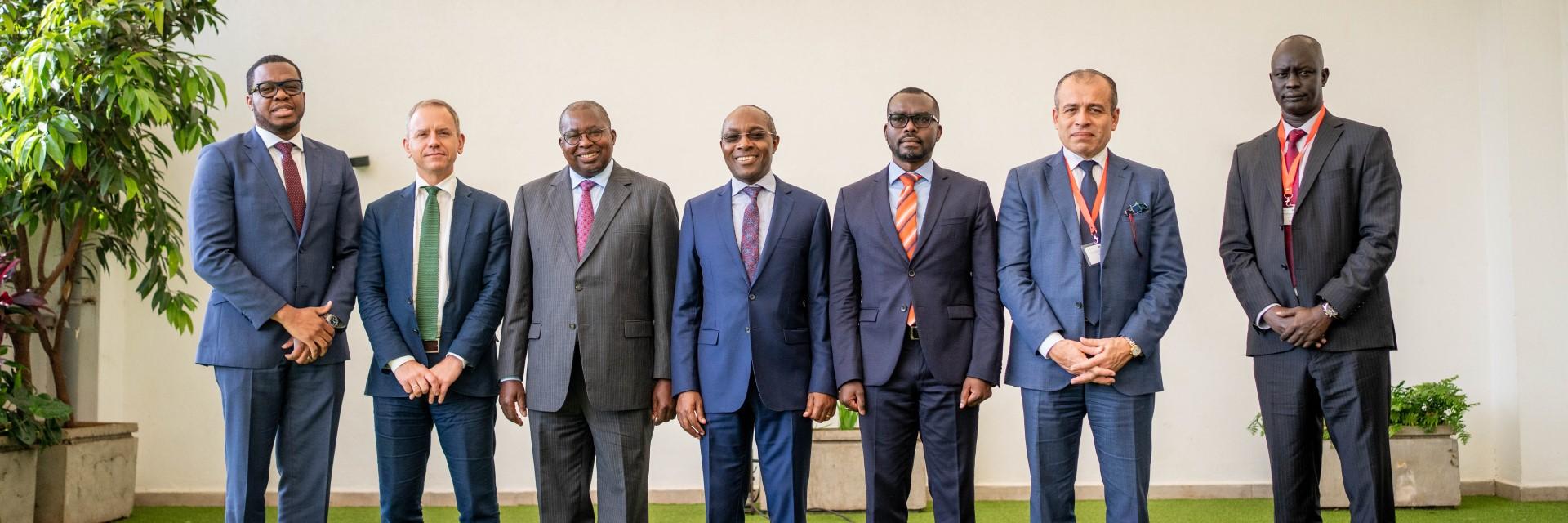Nairobi, Kenya, 15 January 2024 (ECA) - The United Nations Economic Commission for Africa, through its African Trade Policy Centre (ATPC), and in partnership with the African Continental Free Trade Area (AfCFTA) Secretariat and the United Nations Development Programme (UNDP), organized the first conference on AfCFTA implementation strategies, titled: AfCFTA Implementation Strategies: Towards an Implementation Peer Learning Community.
A key objective of the three-day conference that started on 15 January in Nairobi, Kenya, is to lay the foundations of a permanent continental peer-learning platform through which AfCFTA State Parties would exchange experiences on their efforts to operationalize the AfCFTA Agreement through national and regional implementation strategies.
ECA has supported over 30 countries and two regional economic communities (RECs) develop and validate their national/regional AfCFTA implementation strategies. Another four countries and three RECs are at advanced stages in the development of their strategies with ECA support, while a further 13 are at early stages of the process. UNDP has supported three countries while GIZ has supported one other country. Under the leadership of the AfCFTA Secretariat and based on requests from countries, these institutions have also been supporting the AfCFTA State Parties implement the various priority actions identified in their respective strategies.
AfCFTA implementation strategies play a crucial role in translating continental commitments into national laws, regulations, and administrative processes. The strategies also provide practical guidelines and roadmaps to unlock emerging opportunities in the integrated African market.
The three-day conference will serve as a platform for sharing experiences, enabling participants to learn valuable lessons from each other's successes and failures. It will focus on identifying priority actions that governments, the private sector, and development partners can undertake to expedite and ensure full, effective, and inclusive implementation of the AfCFTA. Through interactive sessions and panel discussions, attendees will have the opportunity to exchange ideas and best practices for overcoming obstacles, seizing opportunities presented by this historic agreement.
The Director of Regional Integration Trade Division at the ECA, Mr. Stephen Karingi, speaking on behalf of ECA Executive Secretariat Claver Gatete, stated “The AfCFTA holds the promise for our Continent to overcome the colonial legacy of small and fragmented markets and replace them with a single market." Mr Karingi added that, while the AfCFTA promises to transform Africa, the realization of that promise is dependent on the implementation, by AfCFTA State Parties, of the commitments contained in that Agreement that established the AfCFTA.
Also at the opening, UNDP Regional Programme Coordinator, Mr. Jide Martyns Okeke, speaking on behalf of Mr. Matthias Naab, Director of the UNDP Regional Service Centre for Africa, stressed the need to take a people-centered approach in the implementation of the AfCFTA. He noted: ‘’We must ask whether policies have worked for Africa’s businesspeople – for investors, for producers, for workers, and for communities. This will ensure that policy efforts and institutions are directed towards making the AfCFTA work for Africans”
The United Nations Resident Coordinator in Kenya, Mr. Stephen Jackson, focused his opening remarks on the shining example set by the Republic of Kenya in championing Africa’s regional integration and its special emphasis on unleashing the role of the youth. Mr Jackson noted that “Kenya’s National AfCFTA Implementation Strategy has a strong emphasis on youth as a massive opportunity for growth and economic diversification.” The RC stressed that “Kenya’s youth are known for innovative initiatives in business and investment.”
Also speaking at the opening, H.E. Ambassador Albert Muchanga, African Union Commissioner for Economic Development, Trade, Tourism, Industry, and Minerals (ETTIM), described the AfCFTA as “the launch pad for deeper continental integration.” The Commissioner informed the conference that the AUC, in collaboration with ECA and other pan-African institutions, is undertaking studies to assess the readiness of the continent for the next phase of African integration - the African Customs Union and Common Market.
Finally, Mr Prudence Sebahizi, Director of Institutional Matters and Programmes Coordination (DIMPC) at the AfCFTA Secretariat, speaking on behalf of the Secretary-General of the AfCFTA Secretariat H. E. Wamkele Mene, expressed appreciation for the relevance and timing of the event, commended the 19 State Parties that have already established national AfCFTA implementation committees (NICs) and expressed the commitment of the AfCFTA Secretariat to intensify work in this area. Mr Sebahizi further underscored the importance of such a peer learning platform, informed the meeting about the recent decision taken by the AfCFTA Council of Ministers to establish an AfCFTA Committee of National Focal Points for AfCFTA Implementation and expressed his commitment to institutionalize this conference into the work programme of this Committee.
The three-day conference will provide opportunities for horizontal peer learning among State Parties through breakout sessions that will be held on the second day and the plenary-level exchange of experiences and takeaways that will take place on Day Three.
The conference aims to conclude with a list of potentially high-impact strategic areas that require immediate attention from national governments, the private sector, civil society and development partners.
Media Contact
Ernest Cho Chi, Communications Officer, ECA, chi@un.org
Issued by:
Communications Section
Economic Commission for Africa
PO Box 3001
Addis Ababa
Ethiopia
Tel: +251 11 551 5826
E-mail: eca-info@un.org

